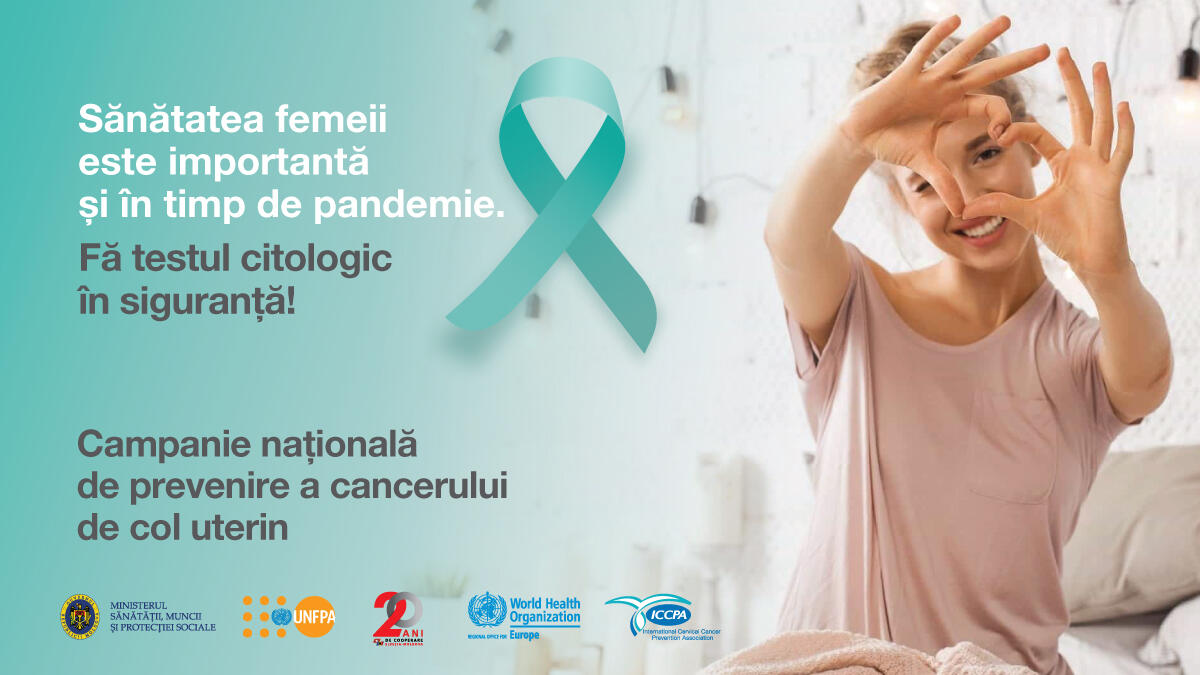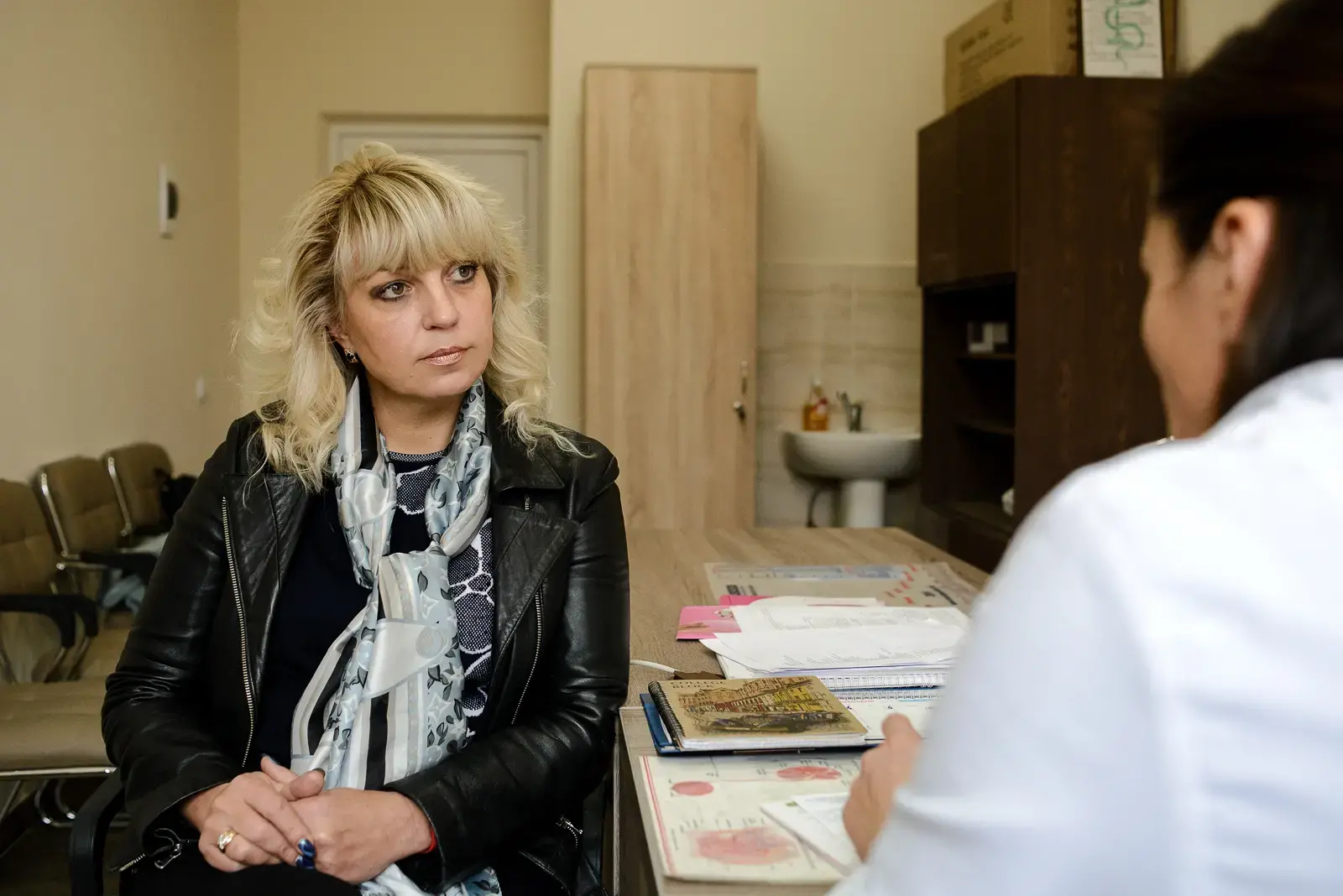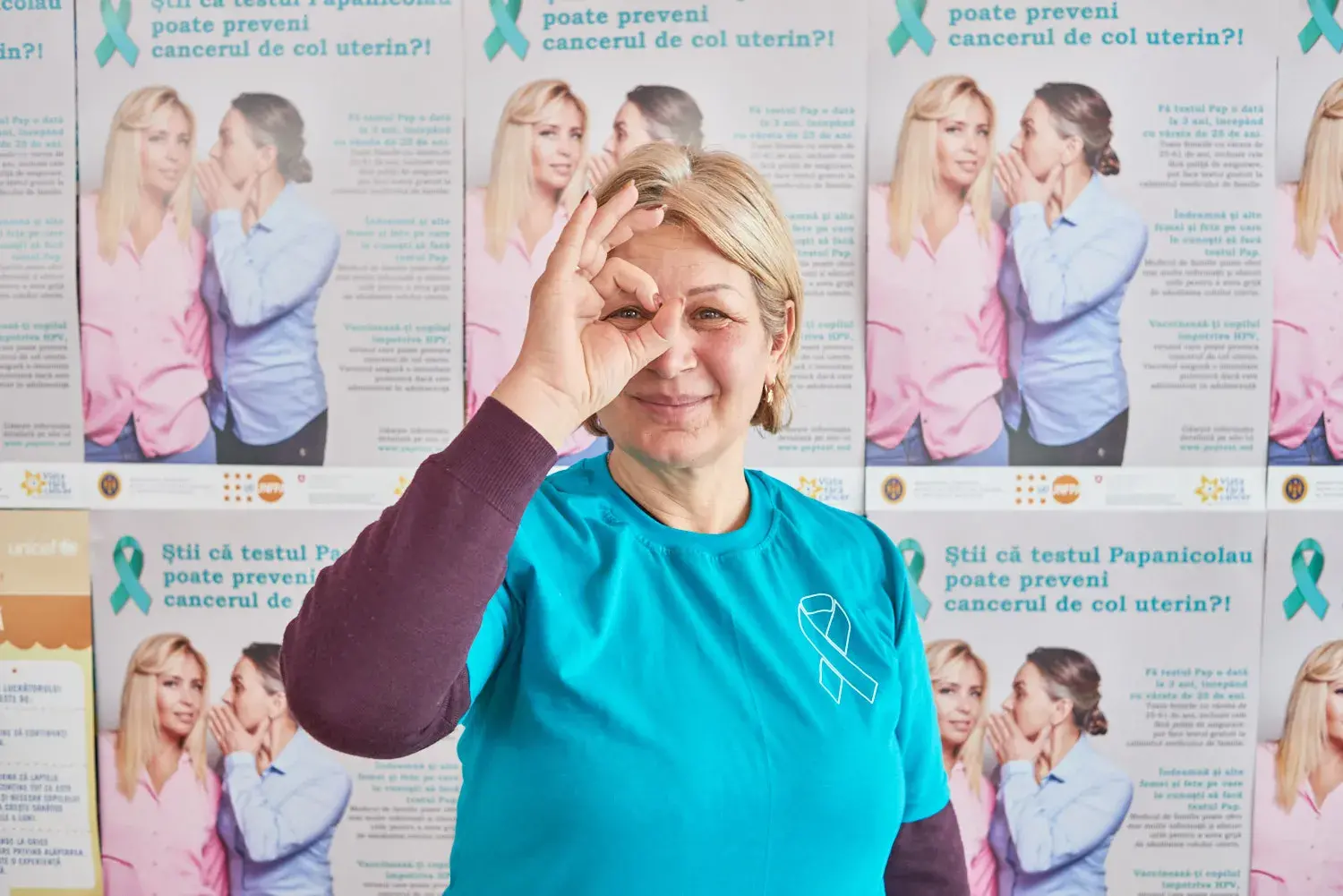The woman’s health is important during the pandemic too. This is the message with which the Ministry of Health, Labor and Social Protection, in partnership with the United Nations Population Fund (UNFPA), Swiss Cooperation Office (SDC) and other partners, restart the national awareness-raising campaign ‘Stay Healthy! Do the PAP-test!’ that will last until September inclusive.
„The COVID-19 pandemic has reoriented health systems around the world, changed the course of life and priorities. But in addition to COVID-19 infection, there are diseases that endanger both people's health and lives. Communication campaign “Stay healthy! Do the PAP test!” relaunched today, aims at informing women about the importance of the cytology test, to motivate them to go to the family doctor every 3 years to do this test and to take care of their health”, mentioned Viorica Dumbraveanu, Minister of Health, Labor and Social Protection.
The National Assessment of Knowledge, Attitudes and Practices on cervical cancer prevention in the Republic of Moldova showed that 59% of Moldovan women aged from 25 to 61 years old have never done the cytological test. The biggest number of women in this sense refer to the Southern part of the country, but also from low income families.
Lack of time, fear, but also not knowing whom to address to perform the test: these are reasons most frequently invoked by women, preventing them from doing the cytological test.
However, in recent years is registered a positive dynamic in the number of performed tests. Increasing number of women go periodically for a prevention cytology test. The share of women examined from those in need of control increased from 58% in 2015 to almost 67% in 2019.
This positive dynamic is due to the improvement of the quality of cervical screening services, as a result of the continuous training of medical staff, endowment of laboratories with modern equipment, but also due to public information campaigns about the importance of screening in preventing the disease.
„In the recent years, the United Nations Population Fund in the Republic of Moldova, together with other partners, has continuously supported the efforts of the Ministry of Health, Labor and Social Protection to provide quality cervical screening services and save women's lives. Cervical screening is a component part of essential health care services, which have to be accessible to women at all times, including during the pandemic. We hope that the message of the information campaign will reach as many women from Moldova as possible and they will make the appointment to the family doctor to do the cytological test in safe conditions ", mentioned Nigina Abaszada, UNFPA Resident Representative in the Republic of Moldova.
All women aged 25-61 from the Republic of Moldova are encouraged to schedule an appointment to the family doctor for a free of charge cytological test (Pap-test) made in safe conditions.
Health centers are endowed with protective equipment, and medical staff is trained to ensure that the cytological test is taken in safe for women's health conditions.
More information on cervical cancer prevention and importance of cervical screening by reducing the number of women diagnosed with this disease can be found on the website: www.paptest.md
The campaign “Stay healthy! Do the PAP test!”, launched in January 2020, aims to inform women aged 25-61 years old about this test and to encourage the families, but also the entire society to convince dear women - mothers, wives, sisters, daughters, friends - to schedule an appointment to the family doctor to do the cytology test and take care of their health.
Information campaign “Stay healthy! Do the PAP test!” is implemented by the Ministry of Health, Labor and Social Protection, in partnership with the United Nations Population Fund (UNFPA), Swiss Agency for Development and Cooperation (SDC), World Health Organization (WHO), International Cervical Cancer Prevention Association (ICCPA) and other partners.





